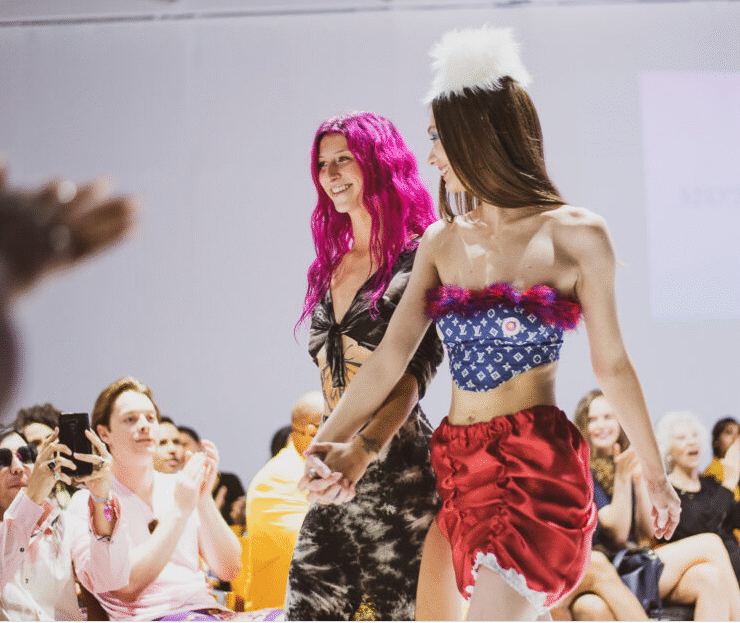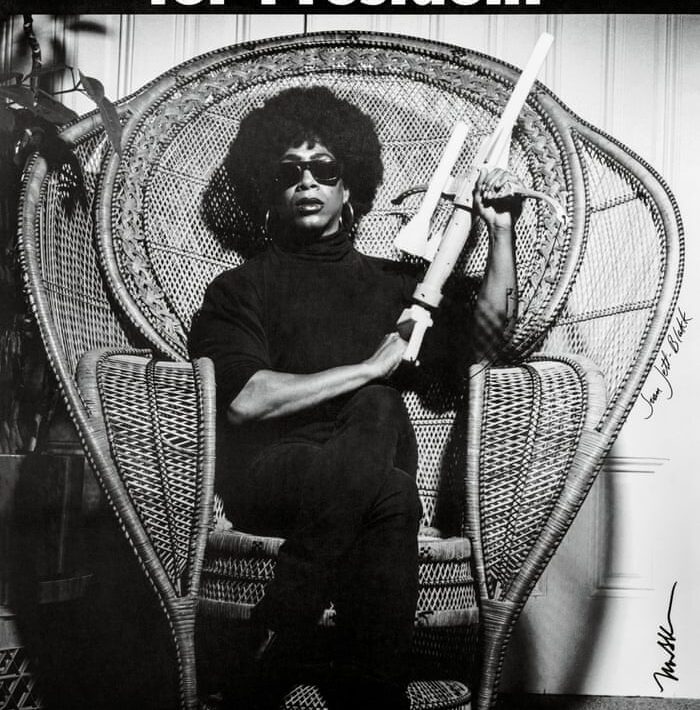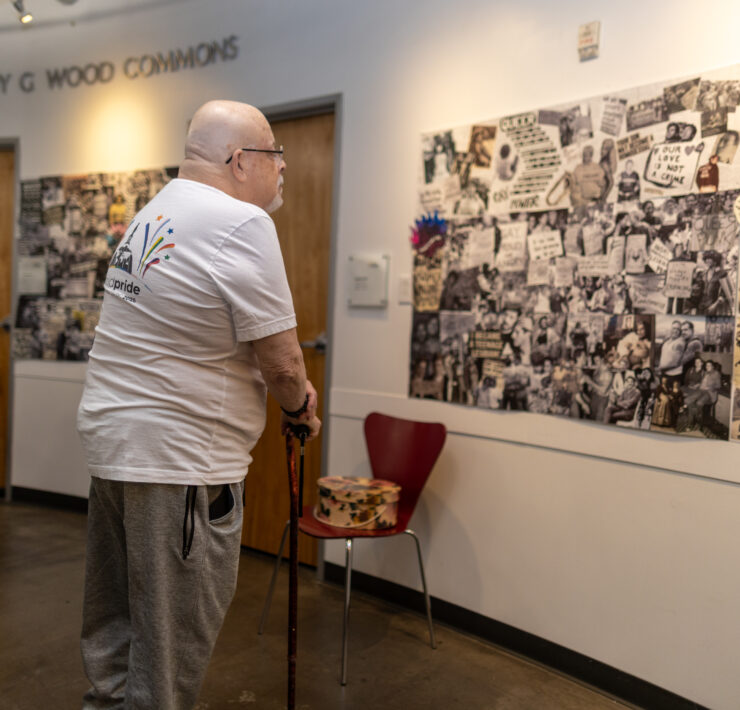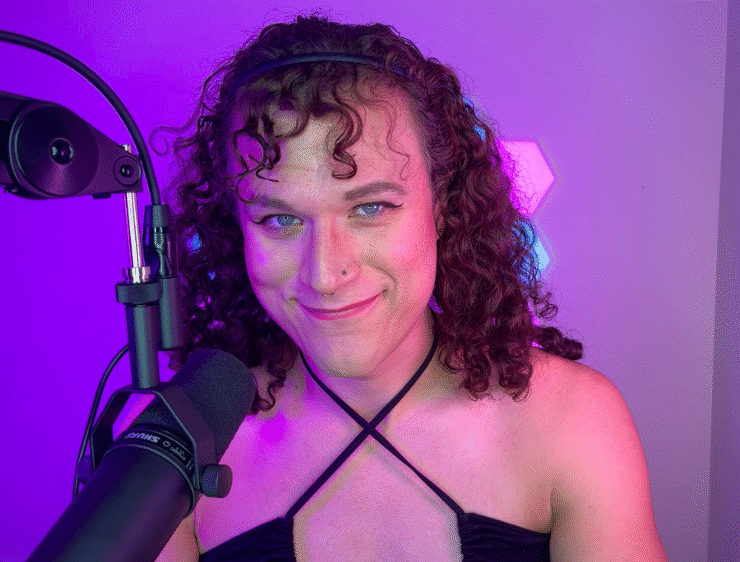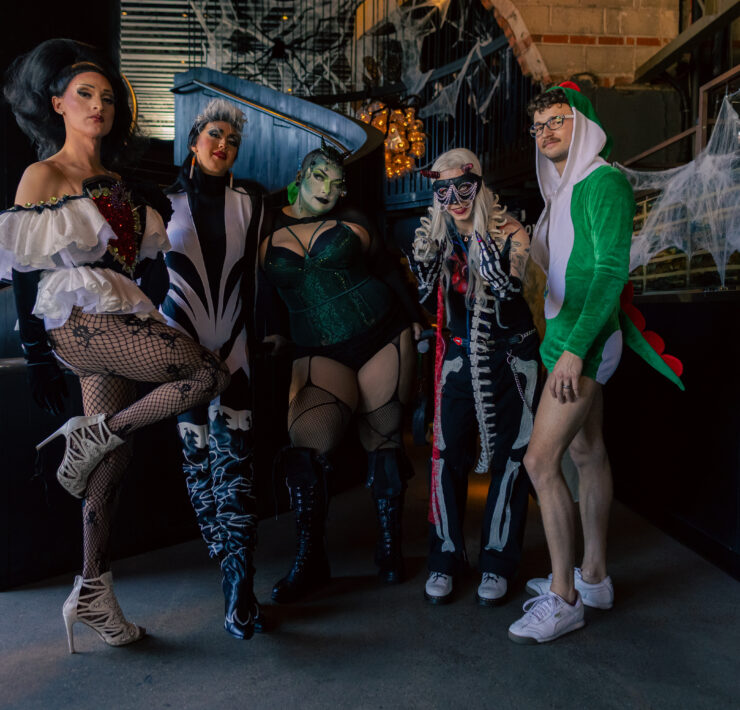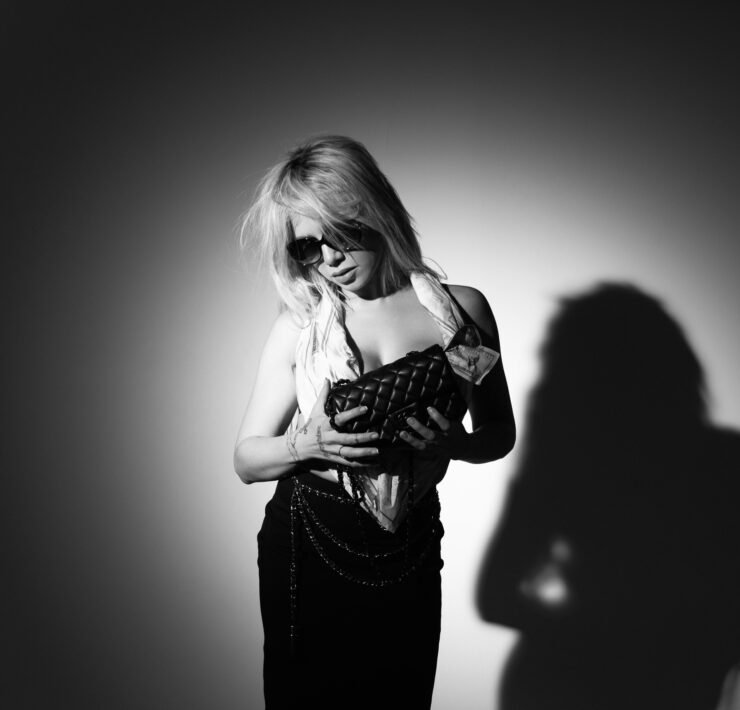Hoping for a Year of Growth and Change: Evelyn Evermoore

Denny Patterson is a St. Louis-based entertainment and lifestyle journalist…
Living in the heart of Denver, Evelyn Evermoore is a multi-award-winning drag entertainer, comic, and costume designer who has provided audiences fun and engaging performances with her blend of comedy and beauty since 2017. From private nights to public brunches, she is no stranger to being on stage. Evermoore has hosted various events in queer spaces throughout the city, such as Hamburger Mary’s and Pride and Swagger.
Although she may be a “dumb broad” in drag, outside, she is an intelligent and vocal, queer activist fighting and speaking up for Denver’s marginalized communities. She is also an advocate for sobriety in the queer community and says the choice to stay away from alcohol has made a positive impact on her life.
Hi, Evelyn! Thank you for taking some time to chat with me again. Happy New Year! Any resolutions?
If anything, I have a desire to be more intentional with the way I use social media and how often I am on it.
What are you looking forward to the most about 2021?
The thing I am looking forward to the most is a new beginning. I am moving into a new era of my life, beginning my transition, and starting a new sewing, fashion-line business. I look forward to doing something new.
I think we can all agree that 2020 was an absolute shit-show. What were some of the biggest challenges and hurdles you faced?
The biggest challenge was really coming out of the last year of my life of being in a different medical crisis. My partner at the time was diagnosed with cancer, and I was his primary caretaker. So, it went from being in this medical crisis to having a breakup and then being in a different medical crisis so close together. It was like being in the headspace of, I’m finally free, then, just kidding, we are in quarantine again.
Entertainers across the country, specifically drag performers, have been severely impacted by the pandemic. From your point of view, how bad was it for the Denver drag scene?
It has been pretty bad. I think there were two main impacts on the Denver scene. One, quarantine and shutdown, several of us felt lost and did not know what to do. Then, at the start of the Black Lives Matter protests, there were also a lot of backlash against some of the larger names in the community.
A lot of people feel like they have a monopoly on the entertainment in Denver. A lot of people have expressed frustrations that we are in a time where there are only so many limited numbers of shows, and because there are one or two main people controlling all the bookings, there are not a lot of opportunities for marginalized people.
How have you been staying connected and engaged with your fans while in quarantine?
I actually did not stay engaged. Last year, I was in a very public breakup, sharing every detail of the crisis we were experiencing. This year, I was like, you know what, I am starting my transition, and I do not want to talk about it publicly. I am going through a lot of things personally that I do not want to stand up and share with people that I do not necessarily know. So, I took a lot of time to just be with myself and kind of sit with me rather than focusing on what other people might find entertaining.
Would you like to talk about your transition?
Sure! I think that was really the best thing that came out of quarantine. I started drag knowing in my heart that I wanted to be a woman. I kind of conflated the idea of being on stage and being a woman as my main option. I just ran with it and jumped in full force. I became a full-time drag entertainer, like a full-time woman, within a year-and-a-half of starting drag, which made no sense, but I was like, this is correct for me.
You don’t make a lot of money doing drag, so you have to do it a lot to survive. So, I did a lot of thinking like, oh, this is just what I want to do and not what I want to be. Being in quarantine and having a space where I was not able to be in drag and got a separation from that identity, and realized oh, I don’t know what my name is outside of drag. Recognizing that, it was like, ‘Oh, this is for you. You are trans. Just transition.’
Now that you are transitioning, are you going to continue to pursue drag?
I am, but to a lesser degree. What I have really been considering is how much space I, as a white entertainer, take up in the Denver scene. I want to be more cognizant of how I am using privilege that I have in these spaces. Drag was really invented by Black, trans women and Black, trans femmes. For the only full-time entertainers in Denver to be three white, AMAB entertainers, it is unfortunate.
How do you think the pandemic has changed the future of live drag shows?
I think it has changed them in more ways than we are aware of right now. I think the most important thing is, hopefully as a community, we become more aware of how important the community is and not as a concept of social status, but identities as human beings. I feel like the drag community was so focused on status, who had the power, who would book people, and the dynamic of trying to get those bookings rather than focusing on drag as an art form. We are artists, and we need to be celebrating artists of all walks of life. Not just to fit in a specific idea of what this art is.
Does Evelyn Evermoore still have the ditzy, dumb-broad aesthetic, or will that change?
When I have been asked in interviews before what the difference is between Evelyn and myself, I never had an answer. That should have been answer enough, but I was like, Evelyn is the space between the jokes. Out of drag, I am hesitant to be myself. In drag, I feel like I can be myself. So, Evelyn is kind of like the highest form of myself. I do not think she is going to change. She may get a little hotter, but that’s about it.
You are very well-known for your costumes and looks. Do you try to incorporate elements of femme, nonbinary, etc.?
I have done a couple nonbinary looks in the past. As fun as those are, the way I am viewing drag now is that it is an outlet to be very hyper-feminine. Whereas, in my day-to-day life, I’m in a button-up and good to go.
Even though drag artists and performers have been out of work, drag has still evolved. How do you think it has changed over the past year?
You know, I have not been watching a lot of drag. A lot of the online shows, as far as I can tell, have been very incredible, but I have not really been in the mental space to watch. I wanted to take some time away from that and focus on my identity as a woman and not a drag entertainer. I would hope that this has given people more time to really assess why they are doing drag and what about it attracts them, rather than the idea of doing drag to be famous.
You have also been on a journey of sobriety, and I applaud you for making that decision. How has that been going, and what made you make that choice?
I originally started going sober two years ago for No Drink November. I thought, you know what, let’s just try it this year. I had a moment where I recognized that, as I was performing shows, I was like, ‘I cannot do this unless I need to drink. That is not a good sign. That is bad.’
So, I decided to go a full year of sobriety and realized in that year how important it was for us as queer people to recognize that drinking and alcoholism is so much a part of our culture. It is a part of the way we exist as queer people. The only safe, community spaces we really have are bars and places that focus on the sale of alcohol. When you are in an already traumatized community, that puts us in a place of normalizing substance abuse; that is very dangerous to our health.
It sounds like sobriety has had a positive impact on your life.
It has, yes. I noticed when I don’t drink, I am able to just kind of wake up and feel OK, whereas as a full-time drag entertainer, I was drinking four to five times a week and waking up hungover for six days in a row. It was not healthy or good. I am able to be better.
What advice can you offer to those who are struggling with alcoholism and addiction, especially during these times of COVID?
It is hard because alcohol is absolutely a coping mechanism, and we are in a place of great turmoil. I would not advise anybody to not cope in ways that are helping, but I think it is important to be aware of when you are using alcohol, and how often. If you are using it to mask emotions and to numb pain rather than cope, I think that is a sign of addiction. I think it is important for people to know that you are not alone in this, and yes, it is difficult, but there is a way out, and there are places and resources for you to get help. There is community support.
Another one of your passions is social justice, and we saw a lot this past year, especially with Black Lives Matters. What more do you hope to do with your platform in 2021?
What I want to be doing more with my platform is raising awareness for those who are not aware of what is happening, as well as promoting mutual aid. I think mutual aid is one of the best ways that we, as white people, can help our more marginalized allies, or people around us.
By redistributing our wealth that we have gained through the benefits of being white, we can help those marginalized people rather than donating to a charity organization where their CEO is making $30,000 a month. We can donate directly to a trans person, a Black, trans person, and Black family that needs the money to pay their rent next week. I think mutual aid is so important, and that is something I really want to spend this year doing.
Even though we will have a new president, do you think society will stay as vocal as it has been on social issues?
Absolutely not. I think so many people are ready to put all the blame on Trump, and now that Biden is in office, move on. Biden has enacted so many of the criminal reform policies that are hurting the BIPOC currently. Biden was not supportive of LGBTQ marriage, and he is also a figurehead for a much larger state of violence against marginalized people, and it is unfortunate that so many people in our community are ready to not see it.
There is a statistic that I saw that said 25 percent of LGBTQ people voted for Trump this year versus the 14 percent who voted for Trump in 2016. So, the queer people who voted for Trump doubled, and I do not think that is something we are recognizing as a community. Support for Trump and his white supremacist ideology has increased, whether or not we are seeing it.
Before we wrap up, are there any other upcoming projects or anything else you would like to mention or plug?
Yes. I will be posting more about my fashion line and costumes, so you can check out my collection of clothes that you can buy for everyday wear on my website. The only other thing I would say is, if you marched in the protests in 2020, and you have not been keeping up with what’s happening with the names you were chanting, let’s consider those reasons.
Visit evelynevermoore.com, and follow her on Facebook or Instagram @evelynevermore to stay up-to-date on the latest news and projects.
What's Your Reaction?
Denny Patterson is a St. Louis-based entertainment and lifestyle journalist who serves as OFM's Celebrity Correspondent. Outside of writing, some of his interests include traveling, binge watching TV shows and movies, reading (books and people!), and spending time with his husband and pets. Denny is also the Senior Lifestyle Writer for South Florida's OutClique Magazine and a contributing writer for Instinct Magazine. Connect with him on Instagram: @dennyp777.



